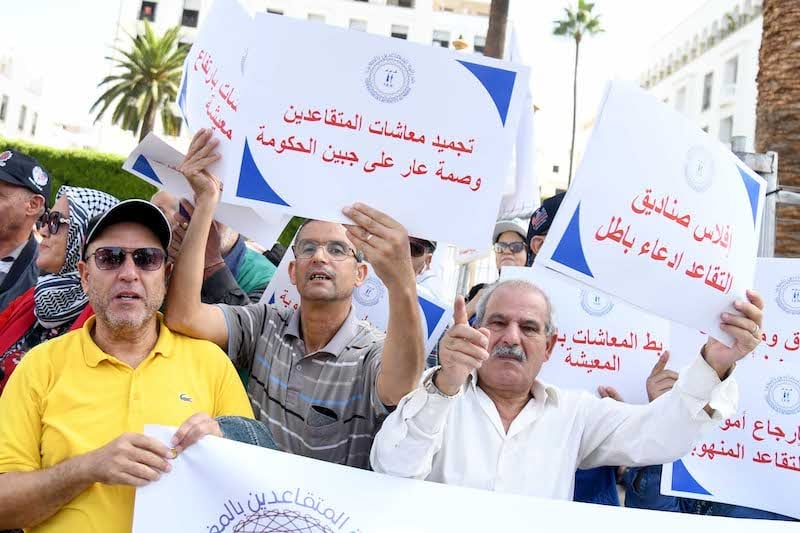Growing Frustration Over Pension System in Morocco
Moroccan retirees are increasingly frustrated with the government’s approach to pension reform, as tensions rise ahead of a critical meeting of the national committee responsible for overhauling the retirement system. The Moroccan Network of Pensioners’ Associations has expressed deep skepticism about the government’s commitment to meaningful change, highlighting long-standing demands that have been ignored for years.
At a recent press conference held at the Moroccan Association for Human Rights headquarters, the network condemned what it described as the government’s continued neglect of its responsibilities. One of the primary concerns is the stagnation of pension payments, which have remained frozen for 25 years despite rising living costs. Retirees are calling for an increase in their monthly allowances, as well as improvements in healthcare and social services.
The demands extend beyond financial support. Retirees are also seeking access to transportation discounts, medical care, affordable shopping options, and better access to public services. These issues are seen as essential to improving the quality of life for the elderly population, who are often left without adequate support.
In response to the lack of progress, retirees plan to stage a demonstration in front of Parliament on Thursday. Mustafa El Bouihi, a coordinator with the Federation of Moroccan Retirees, criticized the government harshly, stating, “The government is killing us while we are still alive.” He emphasized that the current situation has reduced retirees to a “joke” in the eyes of officials, but vowed that this will not go unanswered.
El Bouihi dismissed the upcoming meeting of the national pension reform committee as a mere formality, arguing that past government reforms have consistently led to negative outcomes. He accused authorities of using the insolvency of pension funds as a pretext to target retirees, while simultaneously failing to address the real issues affecting the system.
The network has also called for a full investigation into the management of pension contributions, citing constitutional principles of accountability and responsibility. They argue that the current system lacks transparency and that retirees deserve a more equitable treatment.
Another key point raised by the network is the rejection of ageist stereotypes. Claims that elderly Moroccans should “just pray and sleep” are seen as dismissive and harmful. The retirees emphasize that the issue of pension dignity is a societal concern, not just a demographic one. This perspective highlights the need for broader awareness and support from the public and policymakers alike.
Abdelilah El Jabri, regional secretary of the National Union of Education Retirees, echoed these sentiments, asserting that the upcoming committee meeting will likely yield no new developments. He criticized previous pension reforms for focusing solely on reducing benefits, raising the retirement age, and undermining the rights of contributors. He added that both the previous and current governments have failed to enforce accountability in pension management.
According to the network, 70% of retirees’ pensions are spent on medical expenses, with most monthly pensions not exceeding MAD 1,500. Many receive less than MAD 800, an amount that has remained unchanged for over three decades. This dire financial reality leaves Moroccan retirees able to cover only 5% of their basic living needs, making comparisons with other countries “entirely meaningless.”
The growing dissatisfaction among retirees reflects a broader crisis in the pension system, which has left many vulnerable and struggling to meet their daily needs. As the call for reform continues, the pressure on the government to act decisively is mounting. The retirees’ movement underscores the urgent need for systemic changes that prioritize the well-being of the elderly population.







